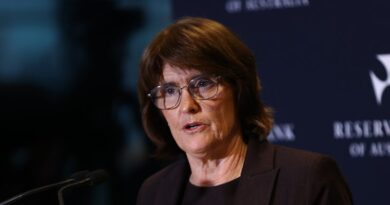Funerals go green
At a funeral, the atmosphere is often filled with grief and remembrance, and many choose to honour the deceased with condolence wreaths. Traditionally these wreaths end up in landfills, contributing to waste.
Now a shift towards sustainability is emerging, transforming these wreaths into valuable items for others.
In recent years, eco-friendly wreaths are fashioned as clocks, books, plants, and other sustainable choices.
These can be donated to those in need, allowing them to serve a greater purpose while honouring the memories of loved ones.
ALTERNATIVE OPTIONS
Eco-friendly wreaths crafted from shrouds were developed by a management consultant whose family operates a textile factory, considered a sunset industry in Thailand because of low-priced competition from China and India.
Orn-Napat Boonanantaphat, founder and chief executive of Niran, a producer and distributor of eco-friendly wreaths, said she wants to add value to her family’s textile offerings and extend the lifecycle of a traditional shroud.
She observed a growing interest in wreaths that serve a purpose beyond simply signifying condolences.
This observation prompted her to develop the shroud wreath using a minimalistic design.
Employing a unique pleating technique, nearly all components of the shroud wreath can be reused, including the shroud itself, pins and rattan materials.
Papachaya Benjathikul, owner of Egg Wreath, is another entrepreneur who sees an opportunity in the eco-friendly wreath segment.
Her innovative idea for an edible wreath emerged during her grandmother’s funeral, where she witnessed numerous fresh flower wreaths discarded in garbage bins.
“I saw hundreds of fresh flower wreaths become waste and some fan wreaths were refused because the temple said it has enough,” she said.
Inspired by this experience, Ms Papachaya began to develop a wreath that would serve a practical purpose for people of all ages.
“I think food is the best option and eggs are something everyone can enjoy,” she said.
“They can be used in various dishes.”
Ms Papachaya initially developed paper packaging, aiming to sell the product to flower and wreath shops.
However, due to customer demand for egg-inclusive options, she has since decided to offer both standard packaging and egg wreaths.
Ms Papachaya supplies paper packaging to flower and wreath shops, coffin shops, egg shops and layer farms across Thailand.
She said a typical fresh egg can be stored at room temperature for up to 15 days, and she advises funeral hosts to keep the egg wreath indoors.
“Egg wreaths can be given to those in need. Sometimes funeral hosts use the eggs to prepare food for the funerals,” said Ms Papachaya, highlighting the practical aspect of her product.
ECO-FRIENDLY PRODUCTION
Ms Orn-Napat said she tries to minimise the environmental impact of producing her wreaths as much as possible.
The company transitioned from using 100% cotton calico for shrouds to a blend of 50% cotton and 50% recycled fibre.
“By not dyeing or bleaching the calico, we can reduce our environmental footprint,” she said.
“Our weaving process uses electricity sourced from solar cells.”
Regarding any potential oversupply of wreaths, Ms Orn-Napat said Niran’s distribution system ensures wreaths are donated to those in need.
Typically temples or funeral hosts handle the wreaths after funerals end. While many fresh flowers wreaths end up in landfills, eco-friendly alternatives including shroud wreaths are sent to hospitals, temples, charitable organisations, and those in need, she said.
“We can recommend suitable donation locations for the wreaths and offer a service to retrieve them from the temples for donation,” said Ms Orn-Napat.
She said there is always demand for shrouds, highlighting shortages in hospitals and among volunteer groups involved in the collection of the deceased in provinces.
“We have connections in various provinces and can send the shrouds to organisations in need,” said Ms Orn-Napat.
CHALLENGES, NOT PROBLEMS
Since the launch of the shroud wreath business in 2023, she said she noticed a gradual increase in demand for this eco-friendly offering.
Initially most customers were individuals, including actors and politicians. Now the company is attracting a growing number of corporate clients that prioritise sustainability, said Ms Orn-Napat.
However, she said it is challenging to change perceptions about eco-friendly products, as many people think these wreaths are expensive and may require changes to funeral protocol.
“We aim to keep our wreath prices comparable to traditional ones. We want to make them more accessible, so there should not be a significant price difference,” said Ms Orn-Napat.
“Our customers don’t need to change their funeral practices as we offer services similar to standard wreaths, including delivery and name plates.”
The prices for shroud wreaths range from 1,500 to 2,900 baht, depending on the design and number of shrouds.
The prices for fresh flower and fan wreaths typically start at 1,000-1,500 baht in Bangkok.
Last year, Niran introduced school uniform wreaths, which can be donated to schools and children in need. These wreaths are priced at 3,000 baht for two uniforms and 5,000 baht for four uniforms.
Despite greater public concern about sustainability, eco-friendly wreaths only account for 10% of the wreath market, though their share is expected to grow gradually, she said.
“I believe people will continue to give wreaths as a sign of condolence, but the design may change as society changes,” said Ms Orn-Napat.
She said many individuals still feel that flowers should be included at funerals as they symbolise beauty and serve as a heartfelt expression of condolence and honour for the deceased.
“Personally, I think beauty does not have to come solely from flowers,” said Ms Orn-Napat.
Ms Papachaya said each egg wreath can hold 62 eggs, with prices starting at 1,290 baht.
Prices depend on the size and type of eggs selected, and packaging alone is 350 baht including delivery.
She said the price of egg wreaths is competitive for customers in Bangkok. If decorative flowers are included, the total cost can rise to 2,000 baht.
Ms Papachaya said she is continuing to develop new packaging solutions to meet customers’ preferences, particularly those seeking more creative designs and smaller, more affordable options.
“The wreaths show condolences to the deceased and reflect the status of both the givers and receivers,” she said.
“To optimise the use of wreaths, they should be decomposable or recyclable. They can also be repurposed for the benefit of others.”
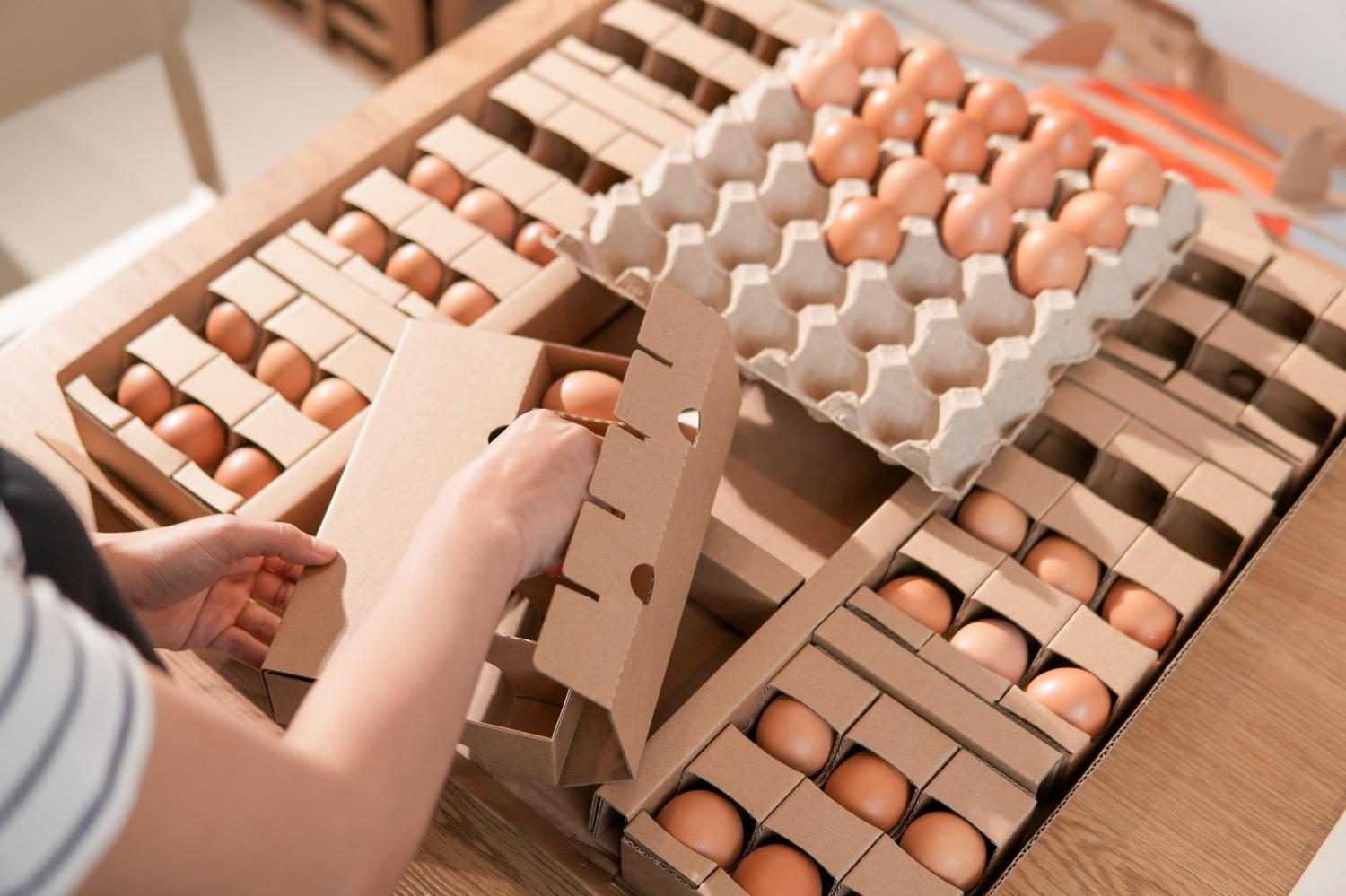
A woman arranges eggs in the wreath packaging.
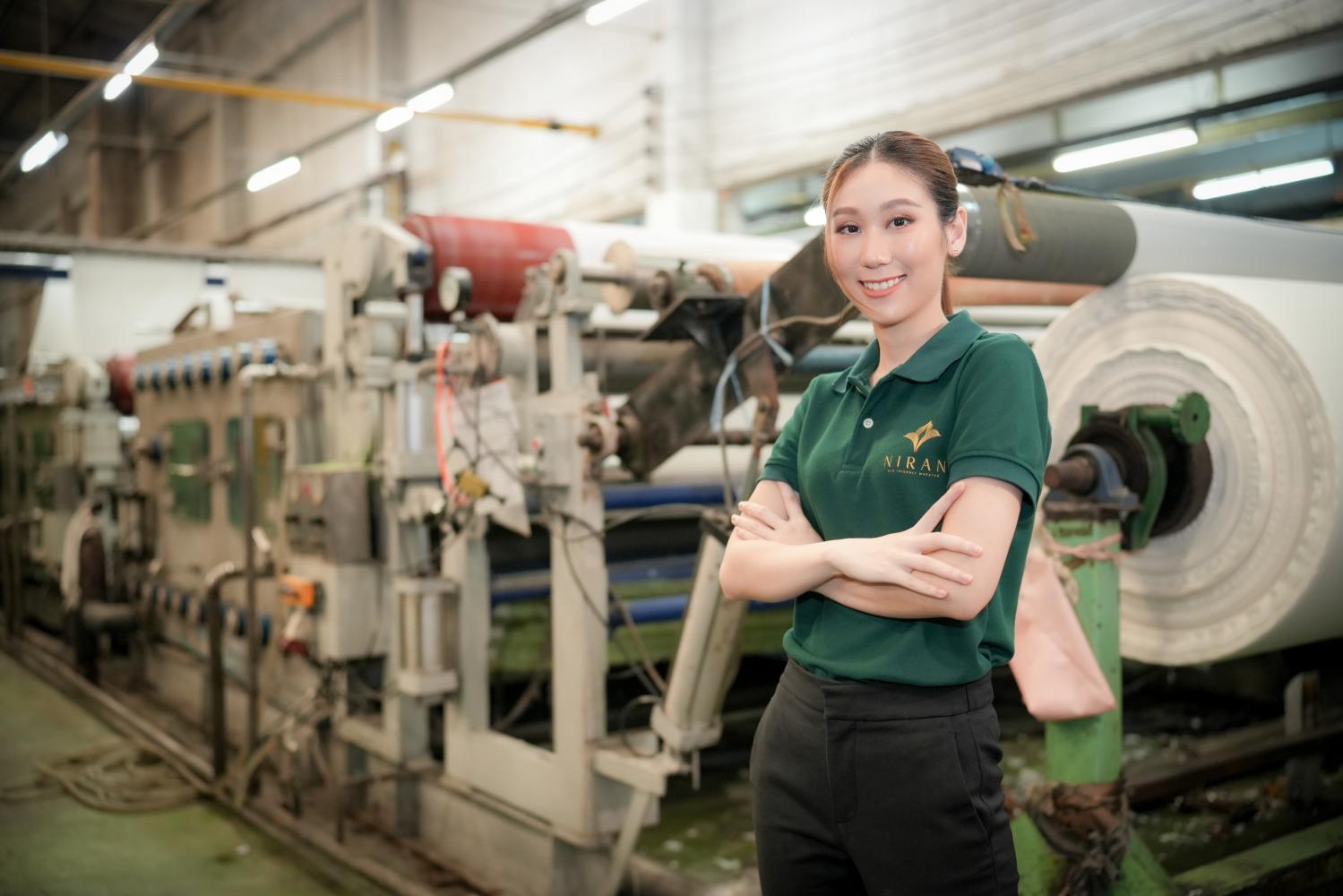
Ms Orn-Napat says her idea sprouted from wanting to add value to her family’s textile offerings.
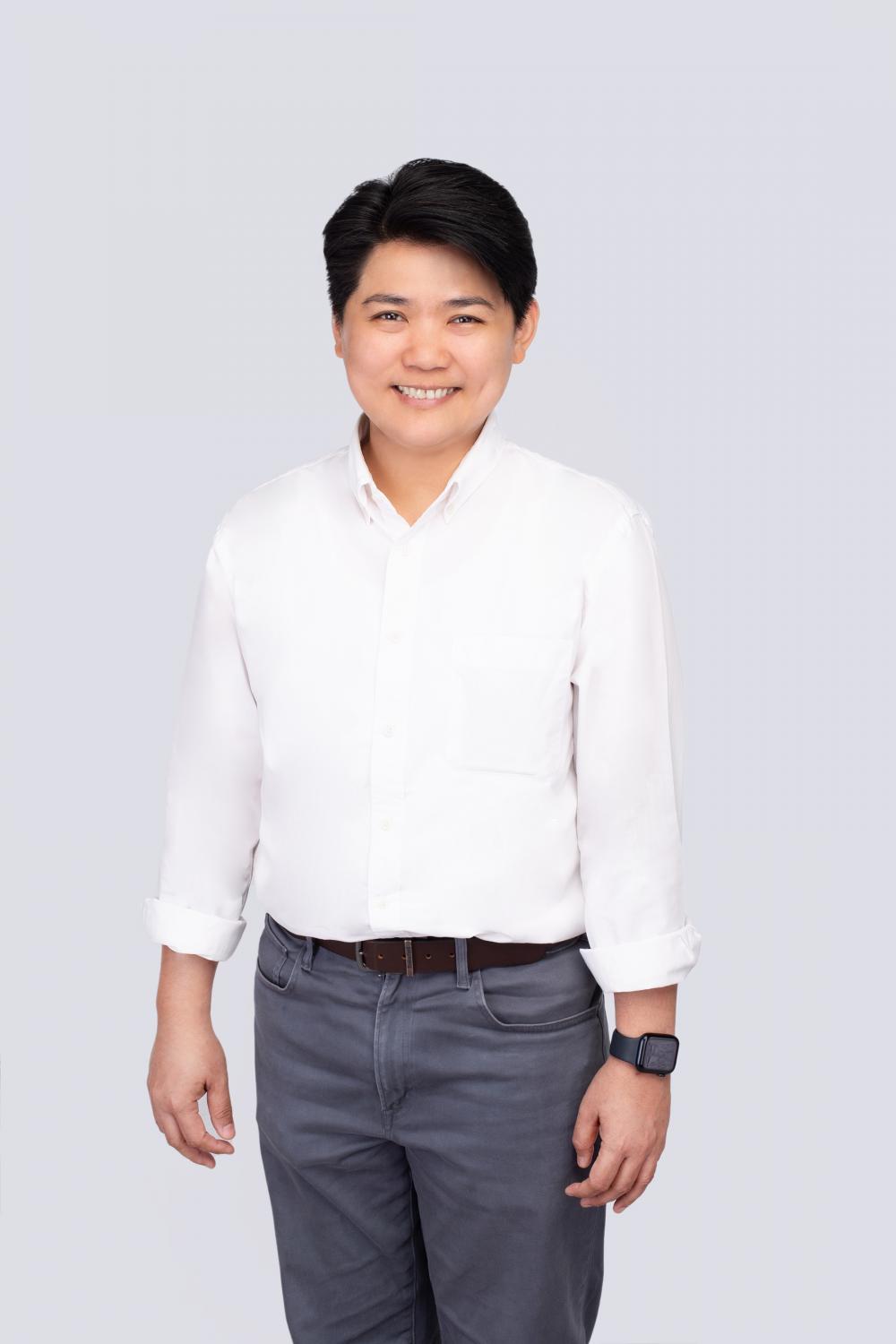
Ms Papachaya said the wreaths should be repurposed for the benefit of others.
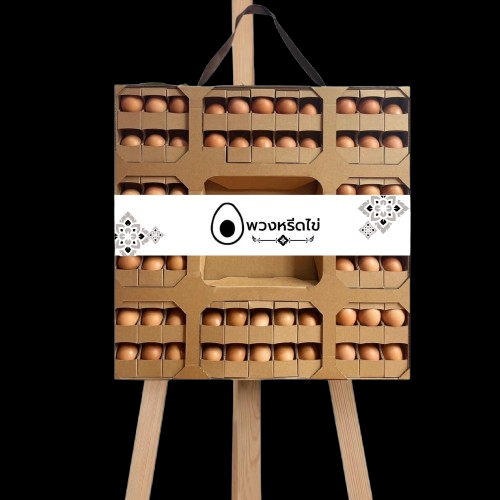
An egg wreath carries 62 eggs.
Source – Bangkok News




